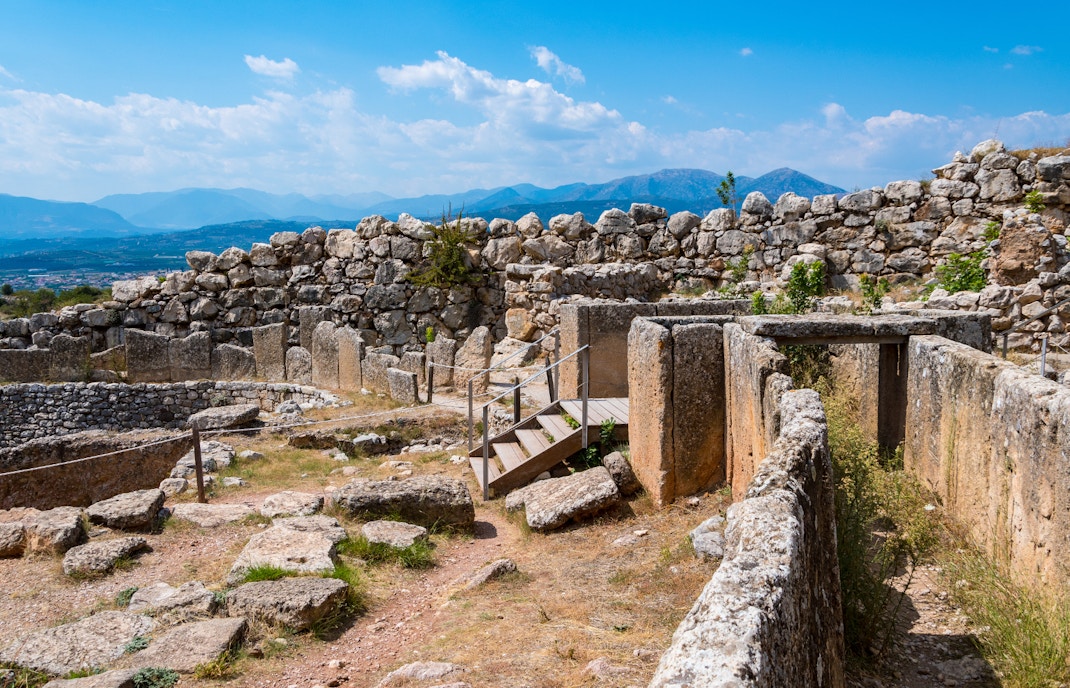Mycenae history: Timeline of events
3000–2000 BCE – Initial Settlement
The area of Mycenae sees its first human habitation, marking the beginnings of what would become a significant cultural center.
2100 BCE – Early Architectural Developments
Evidence of the first building structures emerges, indicating the establishment of organized communities.
1700–1600 BCE – Emergence of the Mycenaean Civilization
The construction of shaft graves signifies the rise of a complex society with hierarchical structures and elaborate burial practices.
1600–1100 BCE – Peak of Mycenaean Power
Mycenae becomes a dominant force in the eastern Mediterranean, characterized by impressive architectural feats like the Lion Gate and the Treasury of Atreus. The city’s influence extends across Greece and into Asia Minor.
1250 BCE – Construction of the Cyclopean Walls
Massive fortification walls are built, showcasing advanced engineering skills and the city's need for defense mechanisms.
1200 BCE – Decline Begins
A combination of natural disasters, internal strife, and external invasions leads to the gradual decline of Mycenaean dominance.
1100 BCE – Collapse of the Mycenaean Civilization
The civilization falls, leading to a period of reduced cultural and economic activity known as the Greek Dark Ages.
AD 1874–1876 – Excavations by Heinrich Schliemann
German archaeologist Heinrich Schliemann conducts significant excavations, uncovering Grave Circle A and bringing Mycenae's historical importance to light.
1952 – Further Archaeological Discoveries
Excavations resume, leading to the unearthing of Grave Circle B and additional structures, deepening the understanding of Mycenaean society.
1999 – UNESCO World Heritage Designation
The Archaeological Site of Mycenae and Tiryns are inscribed as UNESCO World Heritage Sites, recognizing their cultural and historical significance.
2003 CE – Rediscovery of Human Remains
Human remains from Grave Circle A are rediscovered during renovations at the National Archaeological Museum in Athens, providing new insights into Mycenaean burial practices.




